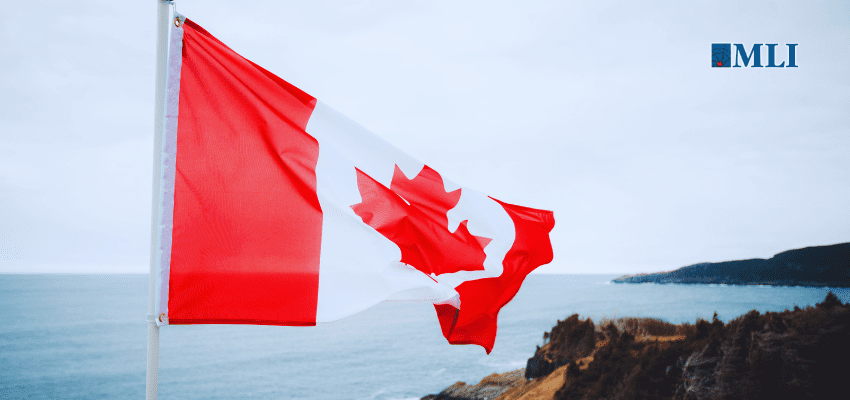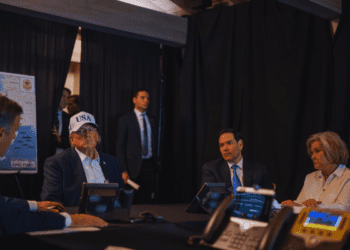This article originally appeared in The Hill Times.
By Stephen Buffalo, April 15, 2025
President Donald Trump’s America is puzzling to say the least. Many of us involved in the resource sector wonder about his bullying tactics towards Canada, America’s loyal friend and largest trading partner. To navigate these challenges, we need a strong resource sector with Indigenous voices at the table.
Under the Canada-United States-Mexico Agreement (CUSMA)—a deal negotiated by Trump that he once labelled the “best deal EVER”—I expected a better business environment for North America.
But that hasn’t materialized. Canada is now scrambling to deal with an ever-changing tariff regime.
Canada’s first ministers have organized a Team Canada response to this unjust treatment. Like many Canadians, they now seem to realize the country should have prepared a decade ago. Had we followed the lead of other energy powers like Norway, we would have enhanced our infrastructure and improved upstream development to get our resources to Asia and Europe. We could have ended our near-exclusive reliance on the U.S. market.
The world wants our oil and gas. But an ideologically driven agenda has gutted our ability to deliver. Anti-development legislation and the cancellation of key projects limited our ability to expand critical infrastructure. We’ve been playing catch-up instead of achieving our potential as global energy leaders, which would have netted revenue to expand social programs and bolster our independence. That’s the legacy of former prime minister Justin Trudeau
As an Albertan, Ottawa’s anti-oil and gas agenda felt a lot like an anti-Alberta agenda. There’s no question that external interests—including well-funded international anti-development groups (many of them American)—made public efforts to shape the debate around Canada’s resources. Few Canadians outside the Prairies stood up.
As the economic engine of Canada—also known by the Cree word Kanata, which in our community means “clean”—the resource sector is vital to our response to Trump’s unpredictable tariff war. Alberta can lead the way with its revitalizing and expanding energy sector, which has some of the world’s best environmental guardrails.
The prosperity is not Alberta’s alone. The sector creates positive ripple effects for the rest of Canada through equalization.
In the past, the industry’s success also created frustration and division—often because the rest of Canada does not appreciate its contributions. But that may have changed.
Trump’s bullying tactics have drawn the nation together behind the Team Canada banner. The country may finally build more pipelines and infrastructure. The 2025 federal election provides an excellent opportunity to find out where the political parties stand on the development of Canada’s energy potential.
Economists are united on this topic: without a robust energy sector, there won’t be a robust Canadian economy to attract billions of investment dollars lost over the past decade.
To succeed, Team Canada requires a solid and prominent Indigenous partnership.
The misleading narrative that Indigenous communities oppose oil, gas, and pipelines is simply not true. Our organization, Indian Resource Council (IRC)—which represents more than 130 oil- and gas-producing First Nations—has long supported responsible resource development because it drives economic opportunity for our people.
Indigenous Peoples do not need or want activists speaking for us. We are tired of the ecological colonialism of environmentalists who persist in believing that they know what is best for us. We speak for ourselves. This means we must be at the Team Canada table.
More than a century of government dependency under a regressive Indian Act badly hurt our communities. We struggle daily with its effects—including the unbelievable reality of boil-water advisories for dozens of Indigenous communities. The absence of revenue-sharing agreements between governments and Indigenous people are a sign of unfinished treaty business. Our elders remind us routinely that we only agreed to share this land “to the depth of the plough.” Oil and gas is, for Western Canada, the new buffalo.
I am proud of the progress we have made. Initiatives such as the Alberta Indigenous Opportunities Corporation, and the recently announced and expanded federal Indigenous Loan Guarantee program finally promise access to much-needed capital to engage fully in the modern economy.
The IRC advocates that Indigenous people and their institutions be included in national deliberations on our collective energy future. We have been ignored far too long.
We stand with the energy industry, and consider ourselves an essential part of Canada’s economic present and future. We are proud Canadians—in fact, we are the First Peoples of Kanata. Companies and governments will come and go, but First Nations people will always be here. We want to work together to develop the resources that will help us—and all Canadians—make our way economically in the treacherous, uncertain world created by Trump.
Getting started means including Indigenous people and institutions in national economic planning and policymaking in a meaningful way.
Stephen Buffalo is president and CEO of the Indian Resource Council of Canada, and a senior fellow at the Macdonald-Laurier Institute.
The author of this piece has worked independently and is solely responsible for the views presented here. The opinions are not necessarily those of the Macdonald-Laurier Institute, its directors or supporters. The Macdonald-Laurier Institute is non-partisan and neither endorses nor supports candidates or political parties. We encourage our senior fellows to comment on public policy issues, including during election campaigns, but the publication of such expert commentary should not be confused with the institute taking a position for or against any party or candidate.






